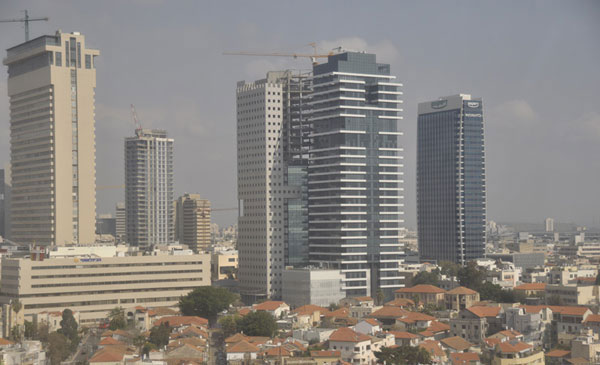Few people realize that Israel, despite all its political problems, is one of the world’s most successful economies. Since 2004 its GDP has grown about 5 per cent a year in real terms every year except 2009, when the global economy crashed.
And Israel has proved to be one of the better places to invest. Bloomberg reported recently that over the past ten years its stock market gave the world’s highest risk-adjusted average annual return (7.6 per cent) among 24 developed nations.
How has this come about? Due to a combination of factors:
► Sound policies: A major economic crisis in the early 1980s which saw inflation hit 450 per cent in the wake of an explosion in public spending and money printing, drove squabbling politicians into a “grand bargain” encompassing cuts in government spending, a massive devaluation of the currency, severance of the tie between wage increases and the cost-of-living, and granting of more independence to the central bank.
That triggered a long period of economic recovery, with a new bout of reforms following in the Noughties that saw extensive deregulation, tax cuts and the appointment of a highly-respected non-Israeli, Stanley Fischer, as head of the central bank.
Although public spending is still high, the government has gradually reduced its role in the economy, the state’s share falling from 56 per cent in 1988 to below 43 per cent, with policies focused on keeping fiscal deficits manageable and inflation low.
Israel managed to escape the worst of the global financial crisis because it implemented properly a Keynesian policy of cutting its state deficits in the good times, so it could safely let them grow to bolster demand when the global credit bubble burst.
Now Israel has a budget deficit of only 4 per cent of GDP and a tiny foreign-trade deficit. Per capita income has exceeded $31,000 a year – “half as much again as the few countries, such as South Korea, Slovakia and the Czech Republic, that have grown at a similar pace” in recent years, the FT commented a few days ago.
Having avoided a property crash or a banking collapse, its debt-to-GDP ratio is a manageable 70 per cent, exports of technology, pharmaceuticals and other high-value goods account for two-fifths of national output, and foreign direct investment is strong – about $8 billion last year.
In its latest report on the country the International Monetary Fund has praised its economic management, noting a low rate of inflation (about 2 per cent), and moderate levels of unemployment (about 7 per cent) as key positives.
► Immigration: Israel benefited from what The Atlantic writer Jordan Weissmann calls “a once-in-a-lifetime stroke of luck.”
When the Soviet Union began to collapse, US immigration policy “prevented a large number of Russian Jews from coming to the US. Instead, they chose Israel.
“Between 1990 and 1997 more than 710,000 Soviet immigrants landed in the country, boosting the working-age population by 15 per cent.” Around 60 per cent of the new arrivals had a college education. Israel benefited from a tidal wave of well-educated workers including engineers, scientists, managers and professors.
► Adversity as a driving force: Israel has virtually no oil production, is short of water, and is under constant threat from its enemies who have sworn to destroy it. Its people can never relax, luxuriate in prosperity, or even depend completely on its few friends. Israelis have to focus on survival, which has driven them to develop advanced technologies and maximize the benefits of their limited resources – in particular their human resources.
Their military technology is superb – world-class in the important new field of cyberwarfare – and has created lucrative spin-offs, especially in telecoms. It is a hot-bed of high-tech start-ups, many of them driven by entrepreneurs who initially developed their skills when serving in the defence force’s highly successful Unit 8200, which from its early days has operated in small, flexible teams focused on finding speedy technical solutions.
That has produced companies such as Check Point, the country’s biggest software developer, specializing in internet-security programs; Nice, whose products enable enterprises and security organizations to monitor “interactions, transactions and surveillance;” Optibase, a leader in video technology; Infinity Group, which buys intellectual property from small high-tech firms for on-selling or licensing to Chinese businesses.
Adversity has driven Israelis to be hard-driving, ambitious and often entrepreneurial — keen to go on their own and start something new. Israel now gives birth to more high-tech start-ups relative to its population than any other country.
An entrepreneur-friendly ecosystem
enture capital used to be a problem when the economy was dominated by state enterprises. That began to change with the Yozma programme, a $100 million state-financed fund that was started in 1993. The government encouraged foreign venture capitalists to finance new businesses by offering low taxes and promising to match part of the money they raised from investors.
It was so successful that within a few years hundreds of start-ups were being backed every year, and in 1998 Yozma itself was privatized. Today there is what has been described as “a financial ecosystem” for entrepreneurs, and Israel generates more venture capital per person than any other country.
Increasingly multinationals such as Apple, IBM and Warren Buffett’s group are snapping up Israel’s entrepreneurial young firms to access their high-tech skills.
The nation’s industrial skills are not limited to infotech fields. It is for example a global force in pharmaceuticals. Teva is the world’s largest manufacturer of generic drugs.
A big hope for the future is natural gas, even oil. For decades Israeli lamented that God left them deprived of the fabulous underground wealth enjoyed by most of their neighbours. Not true, as it’s turned out.
A decade ago a small natural gas field was discovered off Israel’s Mediterranean coast. Then, in 2009, deep below more than 6,000 metres of water, sand and rock, prospectors found a field more than ten times greater, Tamar, from which a US-Israeli consortium will start pumping gas ashore next April. This has been followed by an even bigger discovery – the Leviathan field, twice the size of Tamar, and the largest new deepwater gasfield to be found anywhere in the world over the past decade.
Israel will soon become self-sufficient in natural gas and have a substantial surplus for export. The government’s tax revenues are expected to reach at least $140 billion over the next three years.
And that could be part of an even greater fossil fuels boom. It’s claimed that Israel has the second-biggest oil shale deposits in the world south and west of Jerusalem – ways are being sought to exploit them commercially.
Israel has enormous political and social problems, not all of them well-recognized by outsiders, for example the growing proportion of the population made up of poor and politically radical groups — its own Arab citizens and fundamentalist Jews. But its economy has become a formidable force, partly thanks to good luck, but mainly due to good governance and a dynamic people.
Not long ago The Economist said Israel in a few decades has “transformed itself from a semi-socialist backwater into a high-tech superpower.”
If you are interested in investing there, probably your best option is an exchange traded fund such as iShares MSCI Israel Capped Investable Market, comprised of 70 stocks, with a bias towards large-caps. Its net expense ratio is only 59 basis points a year and it pays a dividend, currently about 2.75 per cent.
If you prefer to invest directly, one interesting counter is the pharmaceutical company Perrigo [PRGO, Tel Aviv], a lively competitor to the much larger and better-known Teva in generics and nutritional products. Although its dividend yield is minimal, its earnings-per-share have risen by an average of 42 per cent a year over the past five, and kept growing right through the global recession.
Some other possibilities are infotech companies Clicksoftware Technologies, Nice Systems, Mellanox Technologies, Check Point Software and EZchip Semiconductor; Teva, of course; and the gasfield plays Noble Energy, Delek and Isramco.
CopyRight – OnTarget 2012 by Martin Spring





